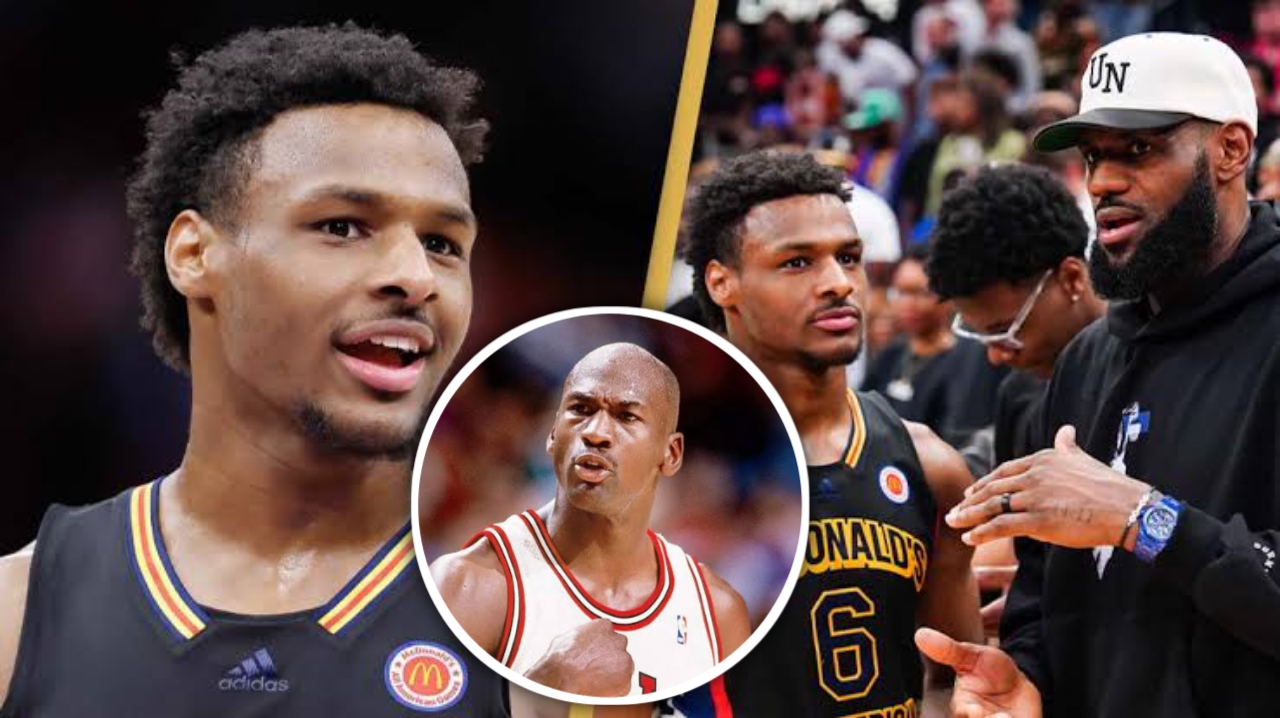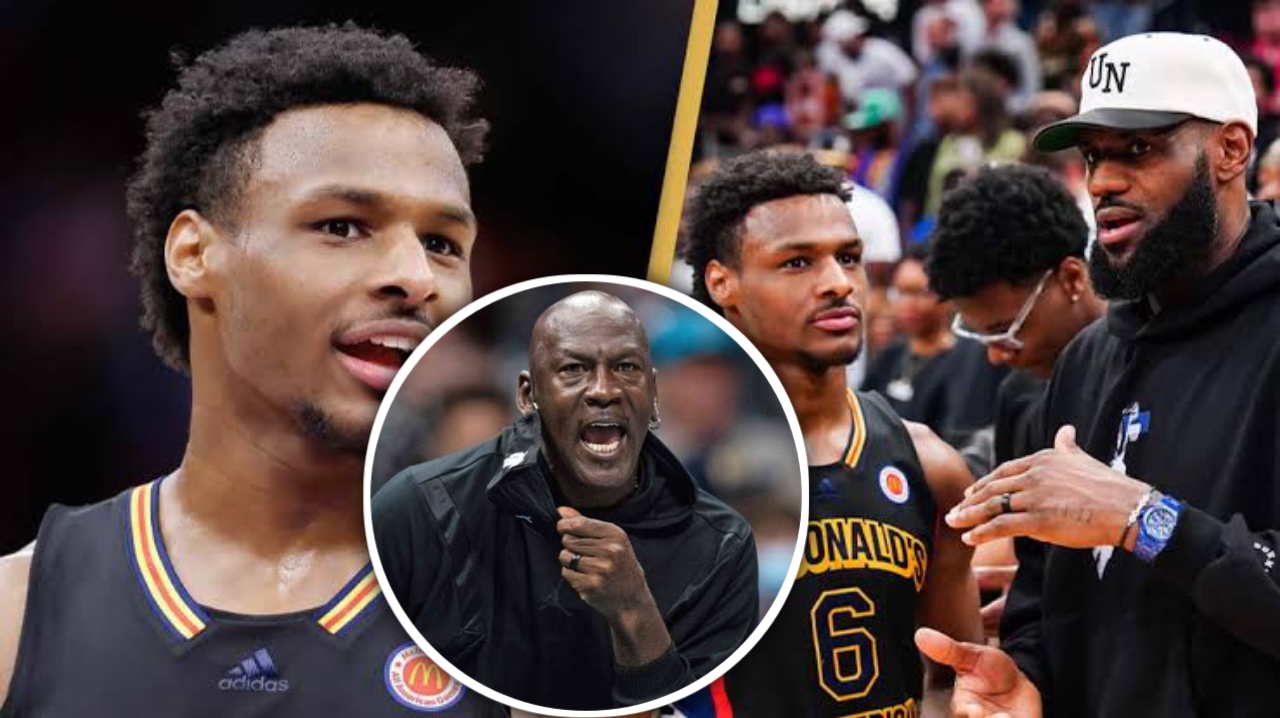In a surprising turn of events, basketball legend Michael Jordan has reportedly voiced strong criticism against the inclusion of Bronny James in the NBA. According to sources close to the situation, Jordan has expressed doubts about Bronny’s qualifications and readiness for the professional league, going so far as to suggest that he was “never qualified in the first place.”

This unexpected statement has sent shockwaves through the basketball community, igniting a heated debate about the merit and fairness of Bronny James’ potential NBA career. Bronny, the eldest son of NBA superstar LeBron James, has been under the spotlight for years due to his father’s legacy and his own emerging talent. Despite being a highly-touted prospect, the young player’s journey to the NBA has been scrutinized, with many questioning whether his opportunities are the result of his famous last name rather than his skills on the court.
Jordan’s remarks add fuel to the fire, suggesting that Bronny’s pathway to the NBA might be more about his father’s influence than his actual abilities. “He was never qualified in the first place,” Jordan reportedly said in a private conversation. “There’s a difference between being talented and being ready for the NBA. Bronny has potential, but the league is no place for someone who hasn’t proven themselves beyond high school and college hoops. It’s not just about who your dad is.”
These comments have sparked a flurry of reactions from fans, analysts, and players alike. Supporters of Bronny argue that he has demonstrated significant skill and potential, citing his performances in high school and his college recruitment as evidence of his capabilities. They contend that every young player has a learning curve when entering the NBA, and Bronny deserves the chance to prove himself on the professional stage.
Conversely, critics echo Jordan’s sentiment, questioning whether Bronny’s path to the NBA is fair and merit-based. They argue that other young talents without famous last names might be overlooked despite having similar or superior skills. This perspective suggests that the NBA should prioritize merit and performance over legacy and marketability when considering new players.
LeBron James has not publicly responded to Jordan’s comments, but those close to him suggest that he is deeply disappointed by the remarks. As a father, LeBron has been supportive of Bronny’s ambitions and has spoken about his dream of playing in the NBA alongside his son. This dream now faces a new challenge in the wake of Jordan’s critical stance.
The basketball community is divided over the implications of Jordan’s statements. Some view them as a necessary critique that highlights the importance of meritocracy in the NBA. Others see them as an unnecessary attack on a young player who is simply trying to carve out his own path in the shadow of a legendary parent.

This controversy adds a new layer to the ongoing narrative surrounding Bronny James and his future in professional basketball. Whether or not Jordan’s comments will influence NBA decision-makers remains to be seen, but one thing is clear: the debate over Bronny’s readiness and qualification for the NBA is far from over. As the young player continues to develop his skills and prove himself, the world will be watching closely to see if he can meet the high expectations set for him, both by his legacy and by the standards of the league.




